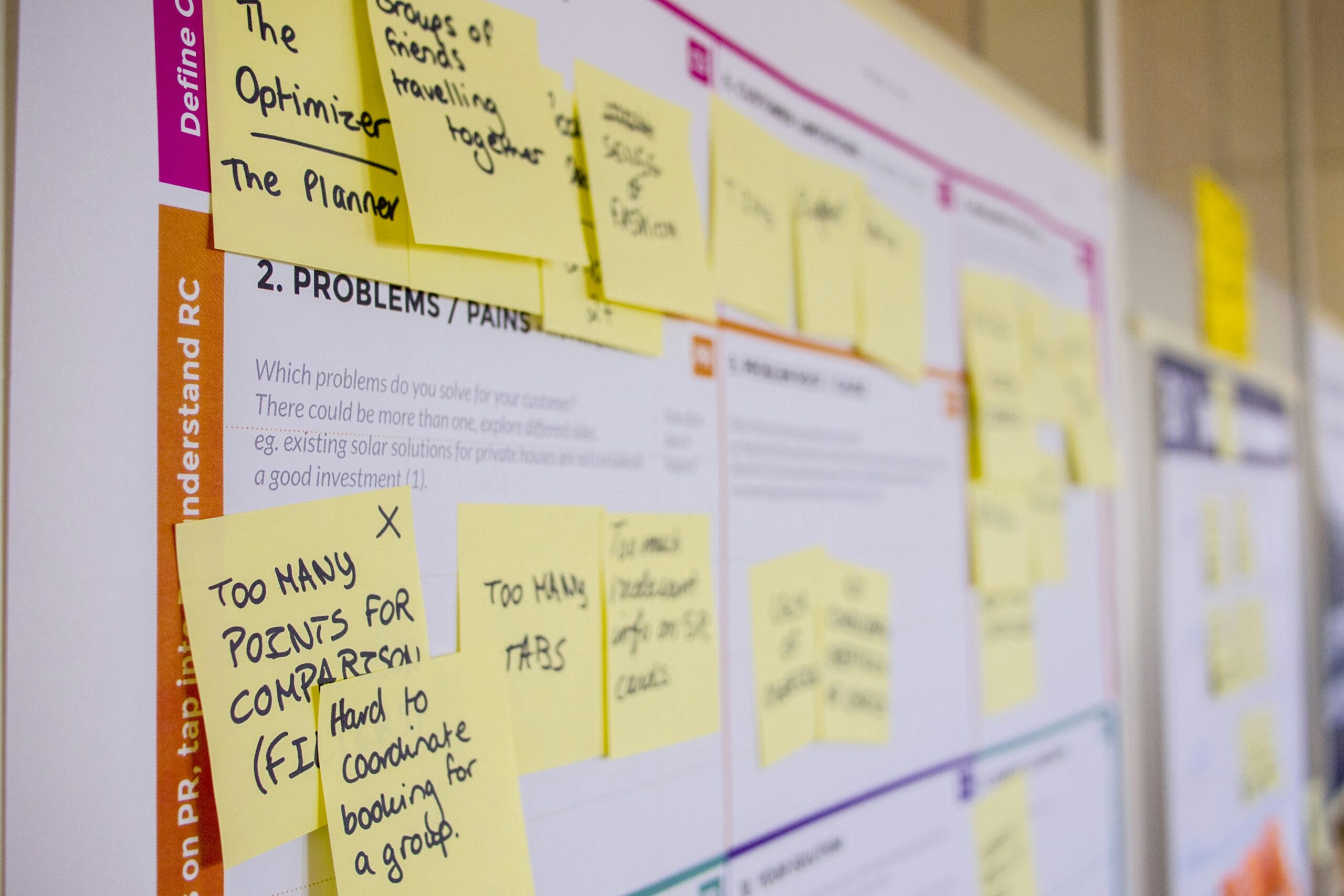I’ve been running an experiment for the last few years. Each time I meet a Micro SaaS founder, I ask them to describe the moment when they came up with their Micro SaaS idea.
I noticed something fascinating about their responses.
Over 90% of them describe finding a frustrating problem in their daily work that lacked a good solution. Maybe it was automating repetitive tasks. Or overcoming limitations of existing tools.
Nearly all successful startups begin by identifying an urgent problem space. Yet most founders don’t spend enough time really understanding customer pain points before jumping to build a product.
But there’s a reliable framework you can follow to zero in on viable Micro SaaS ideas.
In fact, by focusing intensely on mapping specific customer problems before anything else, you can significantly increase your odds of building a must-have product people want to pay for.
In this article, we’re going to learn how to come up with a micro SaaS idea that solves a real problem and delivers value in the world.
Whether you’re a seasoned entrepreneur or a budding innovator, the strategies here will help you turn your ideas into profitable micro saas.
First, however, let’s define micro SaaS and find the opportunities in the micro saas space to build a problem-solving solution.
What is Micro SaaS
A micro-SaaS business is a smaller, more focused version of a traditional software-as-a-service (SaaS) business. Instead of targeting a large market, micro-SaaS businesses focus on a specific niche or smaller group of users.
Think of it like this: Traditional SaaS businesses are like big-box stores that sell a wide variety of products to a broad customer base.
In contrast, micro-SaaS businesses are like the mom-and-pop stores in your neighbourhood that cater to a specific community or niche.
Just like how these small local stores provide personalized service and unique products to their customers, micro-SaaS businesses offer specialized software solutions that are tailored to meet the specific needs of their target audience.
And just like how these small stores often have a loyal customer base, micro-SaaS businesses can build strong relationships with their users by focusing on a particular niche or problem.
Micro SaaS businesses are all about finding a specific need in a smaller market and offering a tailored software solution that addresses that need.
They provide a unique and personalized experience for users, much like how mom-and-pop stores offer a different shopping experience compared to larger chain stores.
How to find Micro SaaS Ideas
Micro SaaS ideas stem from unsolved problems faced by a specific audience. But how do you actually find those issues?
Here are three of the most fertile places to uncover problems worth fixing:
1. Your Own Experience
What processes or tasks do you find frustrating, tedious or time-consuming in your work? Chances are good your peers face similar struggles. Build a solution for yourself first.
2. Existing Customers
Speaking with your current customers is a goldmine for discovering pain points. Simply ask what daily challenges they face that currently lack solutions.
3. Online Communities
Your target customers hang out and discuss issues online. Join their communities and pay attention to the most common complaints and wishes.
Make a list of all the problems you uncover through those channels. The best ideas come from a combination of these 3 problems intersecting together.
Key Criteria to Assess a Viable Micro SaaS Idea
Not all problems make good Micro SaaS opportunities. You need to put each potential idea through a filter to objectively assess viability. Here are 5 make-or-break criteria:
Solvable
Make sure the problem can realistically be solved with software. Don’t bite off more than you can chew as a small startup.
Profitable
Will people actually pay for a solution? Validate there’s a big enough target market willing to spend money before diving in.
Unique
It must solve the core issue better than alternatives. Strive to 10x better versus marginal improvements.
Scalable
Can you achieve hockey stick growth with minimal incremental costs? Software is infinitely scalable if priced right.
Passion
Working on something you personally care about long-term is key to persevering as a founder. Make sure the mission excites you.
Be brutally honest in your assessments. A mediocre idea will lead to a mediocre business. But one that checks all the boxes could be a home run.
A Framework to Develop Your Micro SaaS Concept
Once you’ve identified one or more viable problems, it’s time to develop a solution. We recommend following this proven 5-step framework:
- Specify the Audience: Get very targeted in defining the users with this exact problem. Specificity matters for SaaS.
- Document Their Workflow: Map out exactly how they currently tackle the issue long-form. Identify every step, pain point and requirement.
- Envision the Solution: Brainstorm how software could simplify the process or fix the weakest link. Start high-level before detailing features.
- Analyze Competition: Look for any existing solutions. Make it yours and try to 10x by learning about the shortcomings.
- Sketch an MVP: Outline the minimum features needed to test if it solves issues early adopters care about. Add a pricing model.
Repeating that exercise yields a concept for an early-stage product. Plus documented proof people want it and would pay. That’s an investable business idea.
8 micro SaaS examples you can take inspiration from
1. Resume Builder – Rezi
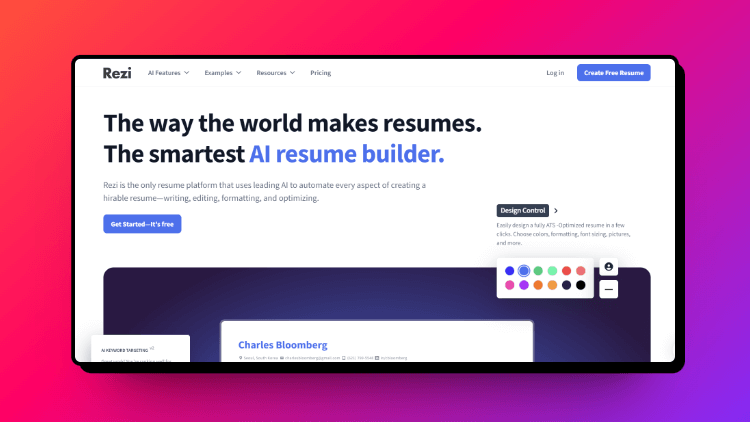
Rezi is a micro saas solution that offers an AI-powered resume builder to create a beautiful resume in minutes. It leverages AI to analyze your skills and experience and then generates personalized content tailored to specific job descriptions.
Key Features:
- AI-generated content tailored to specific job descriptions
- Easy customization with stylish templates and design options
- Proven results with high interview rates and positive user reviews
Why I Like this idea: AI-powered content generation, customization options, and impressive user feedback streamline the resume-writing process and ensure a personalized and professional resume.
2. Automated Marketing Tool – Banner Bear
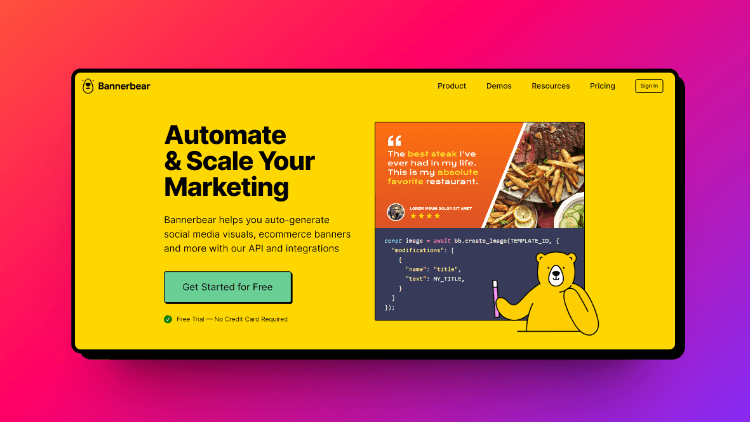
Bannerbear is a powerful micro SaaS platform that revolutionizes visual content creation for marketing. With AI-powered templates and automation, you can easily generate stunning social media graphics, product banners, and videos in minutes, without needing design expertise.
Key Features:
- Effortless Visual Creation: Ditch complex design tools and create high-quality visuals with AI-powered templates and automation.
- Personalization at Scale: Generate visuals tailored to specific audiences or products, enhancing engagement and impact.
- Dynamic Content: Keep your visuals up-to-date with automatic updates based on price, inventory, or other data.
- Video Creation Simplified: Craft engaging marketing videos without needing video editing skills.
Why I Like this idea: Bannerbear streamlines marketing, maximizes impact with personalized visuals, auto-updates visuals based on data, and enables engaging video creation, simplifying workflow for micro SaaS
3. Candidate Screening App – Hirevire
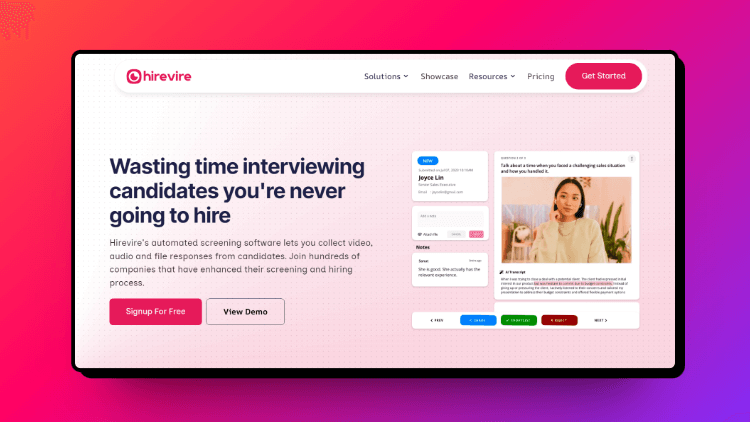
Hirevire is a cutting-edge candidate screening app that leverages the power of video, audio, and file responses to streamline your hiring process. By integrating seamlessly with your existing applicant tracking systems, Hirevire helps businesses efficiently screen candidates and identify promising individuals who might otherwise be overlooked.
Key Features:
- Video Screening: Assess candidates’ soft skills, communication abilities, and cultural fit with pre-recorded video questions.
- Time-Saving: Save valuable time by eliminating the need for lengthy initial interviews and streamlining the screening process.
- Seamless Integration: Integrates smoothly with your existing applicant tracking systems, ensuring a seamless workflow.
- User-Friendly Interface: Easy to use for both hiring managers and candidates, promoting a positive experience throughout the screening process.
Why I Like this idea: Video screening provides valuable insights beyond a resume, efficiently screens candidates, integrates seamlessly with existing systems, and offers a user-friendly interface for a positive experience.
4. Waitlist Software – Launch List
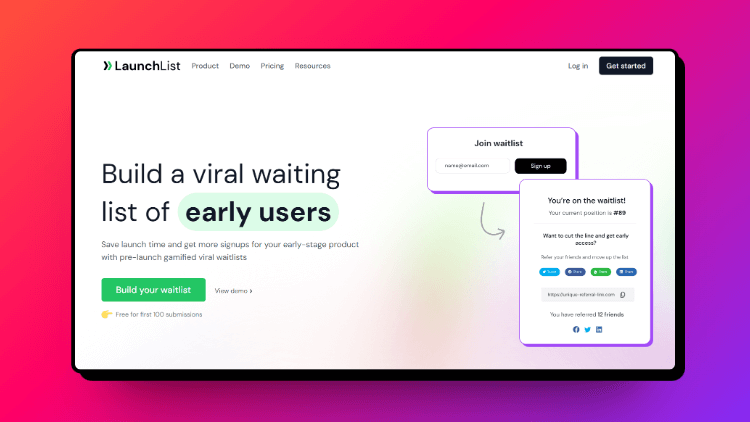
Launch List is a user-friendly pre-launch waitlist software that helps you build anticipation and collect leads before your product launch. With a variety of features, Launch List enables you to create a compelling landing page, capture valuable user insights, and build excitement around your launch.
Key Features:
- Easy to Use: Launch List’s drag-and-drop builder and customizable templates make it simple to create a beautiful landing page, even with no coding experience.
- Valuable User Insights: Collect email addresses, demographics, and interests of potential customers to refine your product and marketing strategy.
- Build Anticipation: Generate excitement with countdown timers, scarcity messaging, and targeted email campaigns.
- Social Media Integration: Reach a wider audience by promoting your waitlist through social media platforms.
Why I Like this idea: Streamlining pre-launch lead generation, providing valuable data-driven customer insights, building anticipation, leveraging social media, and growing your waitlist are the essence of why we like it.
5. Habit Tracker – Harold
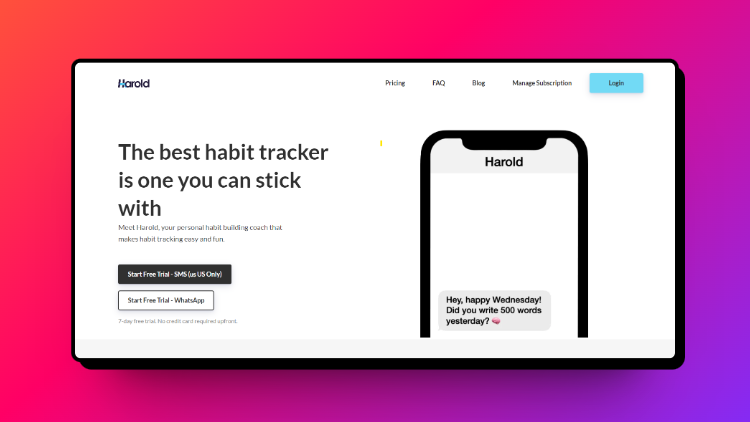
Harold is a simple yet powerful AI-driven micro saas habit tracker that helps you stick to your goals through friendly, personalized SMS reminders. Without the need for apps or logins, Harold keeps you accountable and motivated with daily texts, progress tracking, and a supportive community.
Key Features:
- Simple and Convenient: No need to download apps or create accounts. Track habits and receive daily reminders via SMS.
- AI-Powered Motivation: Personalized messages and tips tailored to your habits and progress, keeping you engaged and focused.
- Actionable Insights: Track progress, visualize achievements, and stay motivated with clear reports.
- Supportive Community: Connect with like-minded individuals for shared encouragement and accountability through Harold’s built-in forum.
Why I Like this idea: Streamlined habit tracking, personalized AI motivation, actionable insights, and supportive community.
6. Landing Page Builder – Carrd
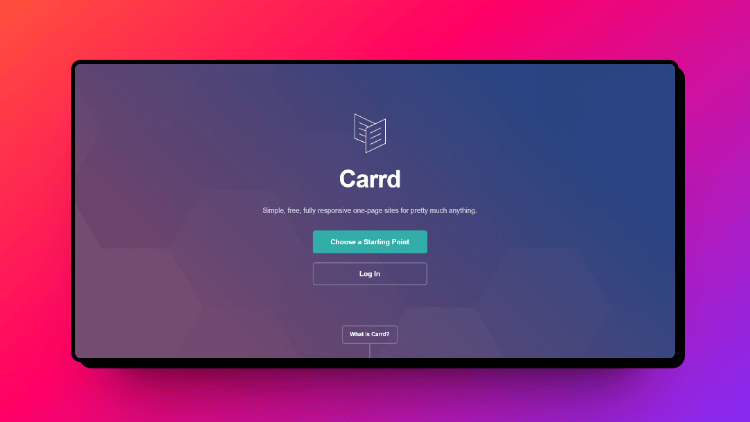
Carrd is a user-friendly landing page builder that empowers anyone to create professional one-page websites with no coding or design skills required. With its intuitive interface and customizable templates, you can easily craft beautiful landing pages for your portfolio, product launch, or any other purpose.
Key Features:
- Simple and Intuitive: Build stunning landing pages with a simple drag-and-drop interface and pre-designed templates.
- No Coding Required: Focus on your content and message, while Carrd takes care of the technical aspects.
- Responsive Design: Ensure a seamless user experience across all devices with Carrd’s mobile-first approach.
- Variety of Templates: Choose from a diverse library of customizable templates to find the perfect starting point for your landing page.
Why I Like this idea: For it’s faster anding page creation, intuitive interface, responsive design, and a diverse range of templates.
7. Analytics – Plausible
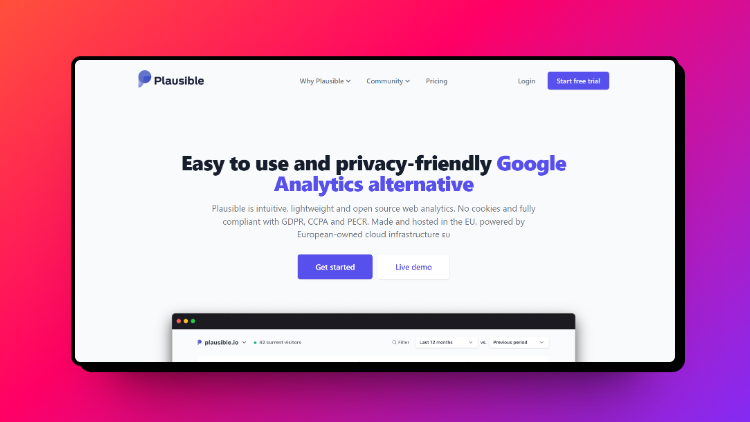
Plausible is a lightweight, open-source analytics platform that delivers valuable insights into website performance while prioritizing user privacy. By respecting Do Not Track requests, anonymizing IP addresses, and avoiding third-party trackers, Plausible provides essential metrics like page views and unique visitors without compromising user data.
Key Features:
- Privacy-Focused: Respects user privacy with data anonymization, Do Not Track compliance, and no third-party trackers.
- Lightweight and Fast: Minimal impact on website performance for a smooth user experience.
- Open-Source and Transparent: Openly accessible code fosters trust and allows for self-hosting.
- Essential Features: Provides key website metrics, custom events, goal tracking, and user segmentation for actionable insights.
Why I Like this idea: It prioritizes user privacy, offers lightweight design for fast loading, is open-source for trust and customization, and delivers actionable insights with key metrics and advanced features.
8. Testimonial Management – Senja
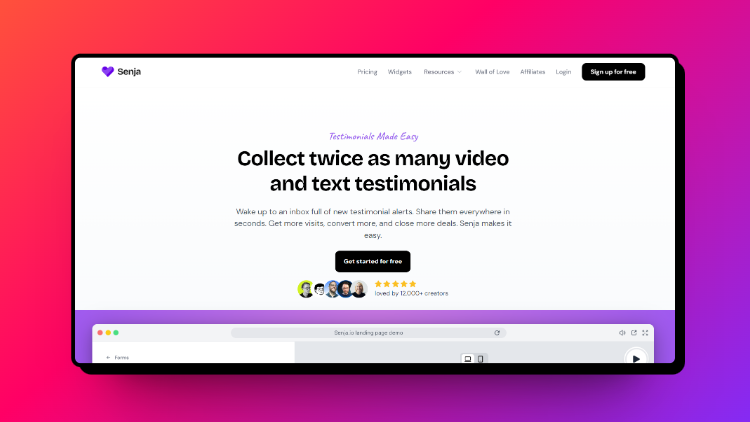
Senja is a user-friendly platform that streamlines the process of gathering, managing, and showcasing glowing customer testimonials. With automated requests, rewards, and powerful search and filtering tools, Senja empowers you to effectively leverage social proof to boost your brand credibility and conversion rates.
Key Features:
- Effortless Collection: Automated video and text testimonial requests with personalized templates and incentives.
- Seamless Management: Review, approve, and publish testimonials across all platforms with ease.
- Targeted Showcasing: Advanced search and filtering tools to find the perfect testimonial for any need.
- Data-Driven Insights: Detailed analytics reports provide valuable customer feedback and inform marketing strategies.
Why I Like this idea: Simplifying social proof gathering, maximizing response rates with automation and rewards, streamlining management with an intuitive interface, enabling targeted showcasing with advanced search and filtering, and providing data-driven insights with analytics reports, Testimonial Hero empowers businesses to leverage customer testimonials effectively.
Conclusion
There is no shortage of micro SaaS ideas to empower users and address real-world needs.
With new technologies like AI and no-code platforms, it’s easier than ever to build valuable yet simple tools quickly.
Whether you’re a developer, marketer, or budding entrepreneur, micro SaaS allows you to tap into trends and create solutions with real impact.
With the right idea and determination to deliver value, you can start your own business in just a week.
The potential is endless. By focusing on a specific audience and their pain points, you can create the next big micro SaaS success story.
The only limit is your imagination on how to improve lives through software.
If you enjoyed reading this, you should check out: Micro SaaS for Sale: Top 8 Platforms to Exit Your Startup Profitably

